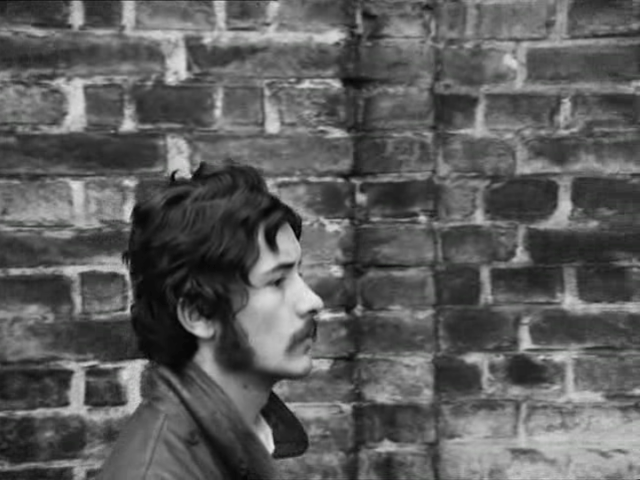 |
| Kurt Raab and Margit Carstensen in Satansbraten |
Although it was written for the screen, Rainer Maria Fassbinder's Satansbraten (aka Satan's Brew) feels stagy. Its absurdist comedy evokes Beckett and Ionesco, and especially Antonin Artaud's Theatre of Cruelty, which Fassbinder more or less acknowledges by appending a quotation from Artaud as a kind of epigraph for the film. But it also harks back to Fassbinder's earliest films, the ones like Love Is Colder Than Death (1969) and Gods of the Plague (1970) that followed his involvement with the Anti-Theater in Munich. In a way it merges the often eccentric performance in those films with the florid style of Fassbinder's Douglas Sirk-inflected melodramas like The Marriage of Maria Braun (1979) and Veronika Voss (1982). The central character of Satansbraten, Walter Kranz (Kurt Raab), is a poet with writer's block who, while trying to work his way out of inertia, unconsciously (or not?) plagiarizes a poem by Stefan George, and when his theft is brought to his attention decides that he is the reincarnation of George. Among other things, this leads him to explorations of his sexuality -- George was gay. But mostly the film tracks Kranz's various involvements with women, including his wife, Luise (Helen Vita), who claims that he hasn't slept with her for 17 days, as well as Lisa (Ingrid Caven), the wife of his friend Rolf (Marquard Bohm); a prostitute (Y Sa Lo) whom he interviews; a wealthy patron, Irmgart von Witzleben (Katherina Buchhamer), who has an orgasm while signing a check for him and whom he then murders; and an adoring fan, Andrée (Margit Carstensen). Meanwhile, he is also dodging a detective (Ulli Lommel) investigating the murder of Irmgart while contending with his brother, Ernst (Volker Spengler), a mentally disordered man who is fascinated with the sex lives of houseflies. It's all very silly but watchable in a "what next?" way. Efforts have been made to explicate the film as a commentary on fascism -- George was enthusiastically courted by the Nazis for his visions of an emergent Germanic national culture, though he shrugged off their approaches -- but such exegeses are kind of wobbly.






